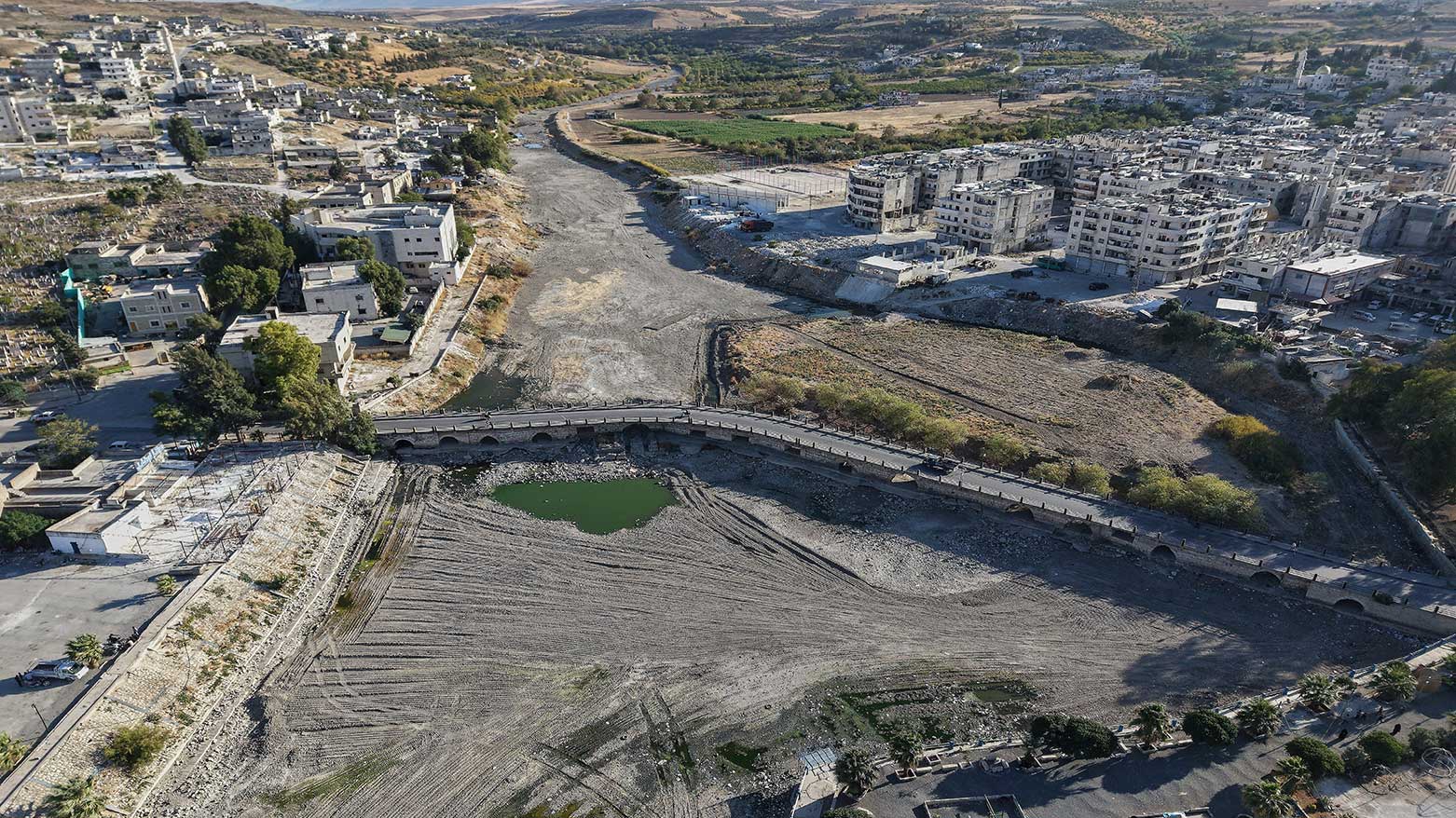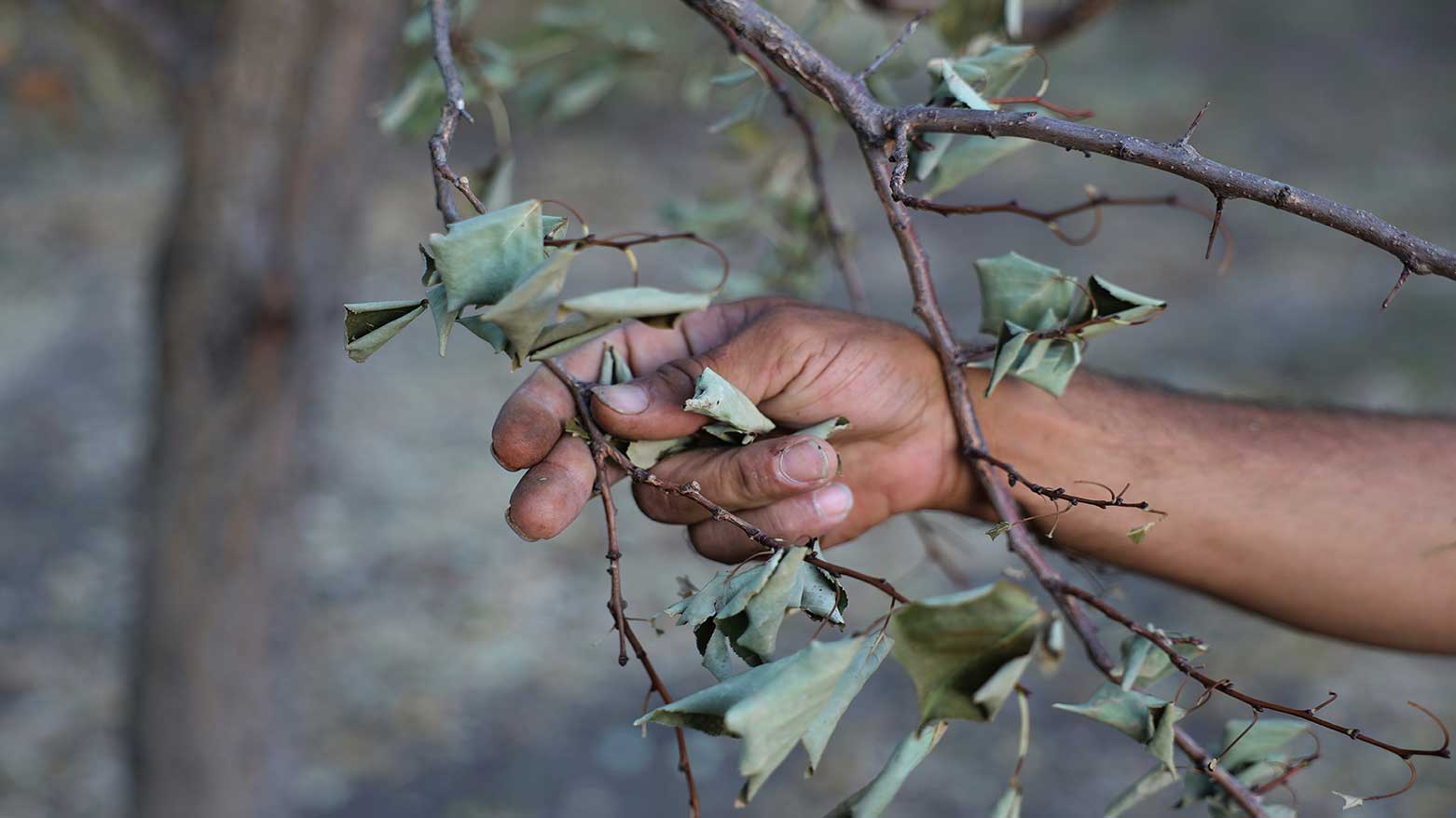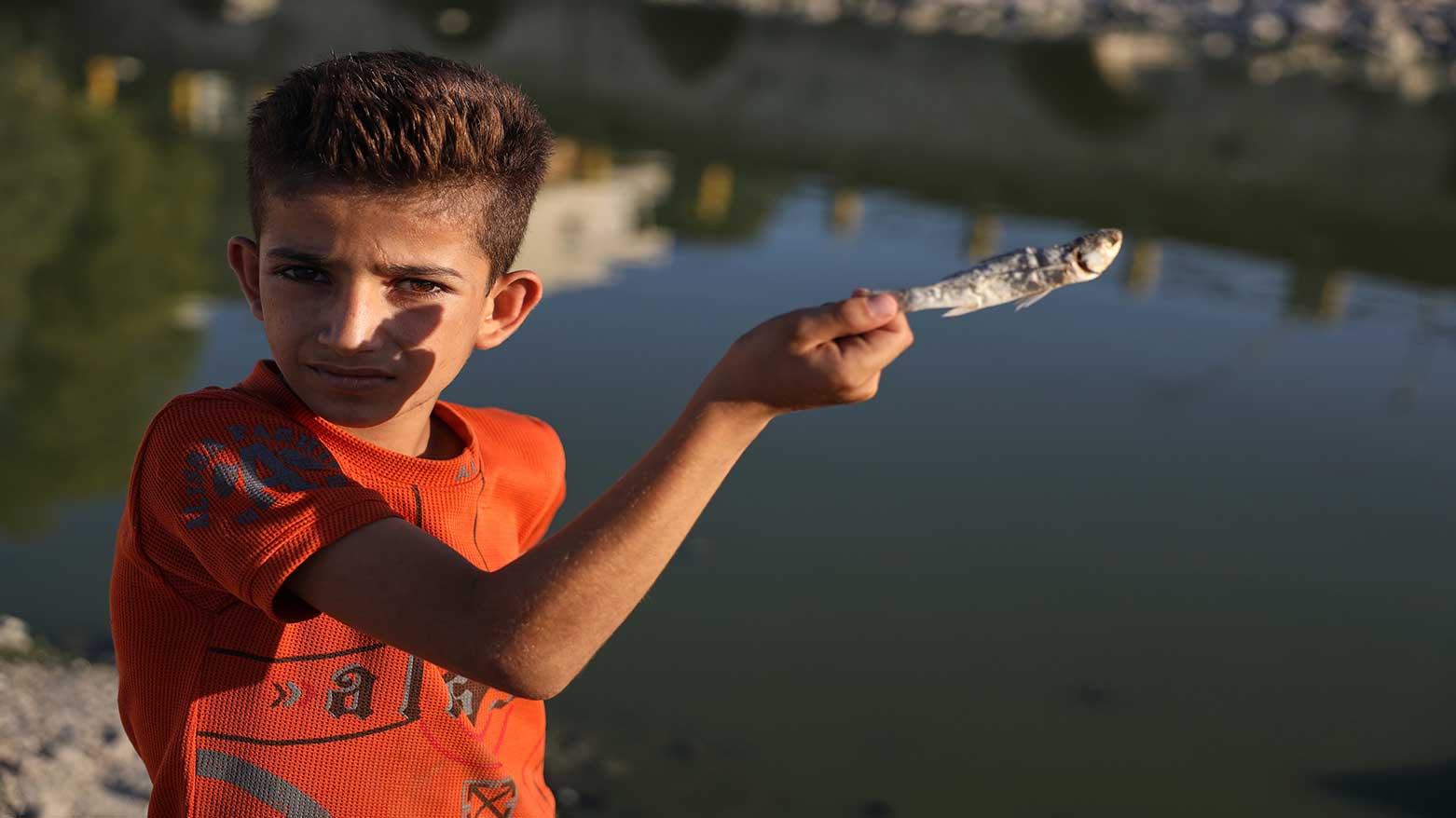Severe Drought Threatens Food Security Across the Middle East, Devastating Syria’s Fragile Recovery
A historic drought gripping Syria and the broader Eastern Mediterranean is decimating crops, draining rivers and reservoirs, and intensifying food insecurity, threatening millions in a region still reeling from war, economic hardship, and political instability.

ERBIL (Kurdistan24) — The worst drought in decades is sweeping across the Eastern Mediterranean and Middle East, drying rivers and reservoirs, crippling agriculture, and forcing days-long water shutoffs in major cities. Experts warn the crisis could have long-term consequences for food security in a region already battered by war and instability.
In Syria, the drought’s impact is particularly severe. After 14 years of conflict that left millions impoverished and reliant on aid, farmers are now struggling to cope with failing harvests and depleted water supplies.
Mansour Mahmoud al-Khatib, a small-scale farmer in the Damascus suburb of Sayyida Zeinab, described how his once-productive land has been devastated. “The land is missing the water,” he told AP, noting that this year’s wheat yield was only a quarter of a good season’s output. Where his fields once required 15 workers, he could afford to hire only six or seven.

Falling wheat harvests
Syria’s wheat production has been in steep decline since the outbreak of civil war in 2011. Before the conflict, annual yields of 3.5 to 4.5 million tons were sufficient to meet domestic demand. During the war, that fell to 2.2 to 2.6 million tons. This year’s harvest is expected to bring in just 1 million tons — forcing the government to import as much as 70% of its wheat, according to officials.
Mudar Dayoub, a spokesperson for Syria’s Ministry of Internal Trade, admitted the harvest will last “only two or three months,” leaving the government dependent on imports and donations, particularly from Iraq. But experts warn that reliance on imports is unsustainable in a country where the UN estimates half the population is food-insecure.
“The total reliance on imports and aid threatens food security,” Saeed Ibrahim, director of agricultural planning at Syria’s Agriculture Ministry, told AP.
Regional water crisis
Syria’s plight is compounded by broader regional shortages. In neighboring Lebanon, Lake Qaraoun — a reservoir that usually supplies a third of the country’s water needs — has shrunk dramatically after an unusually dry winter. This year, inflows measured just 45 million cubic meters, compared to an annual average of 350 million.
That shortfall is also reducing water flows into Syria, where rivers like the Orontes have dried to the point of leaving fish dead on the cracked riverbed. In Idlib province, farmer Dureid Haj Salah said entire orchards and vegetable crops had withered.
“There is no compensation for the loss of crops,” he said. “Farmers make just enough to get by.”
Local water officials reported that groundwater levels in parts of Idlib dropped more than 10 meters in just three months due to over-pumping. Without outside support, measures like installing metered irrigation systems remain out of reach.

Climate pressures
Experts say the crisis reflects a broader climate shift. The Middle East and Mediterranean are becoming increasingly arid as climate change alters rainfall patterns.
“There’s not enough water from rainfall or snowmelt to recharge the groundwater,” said Matti Kummu, a professor at Finland’s Aalto University. “The groundwater table is going lower and lower, which means it’s less accessible and requires more energy to pump. At some point, the groundwater might run out.”
While measures such as rainwater harvesting, drought-tolerant crops, and efficient irrigation could help mitigate the impact, Syria’s fragile economy and political instability leave it ill-prepared to adapt.
With reconstruction costs running into the hundreds of billions and sectarian tensions still simmering after the fall of Bashar Assad, the drought adds another layer to Syria’s uncertainty. Without jobs, stability, or food security, experts warn that millions of refugees may see little incentive to return home.
